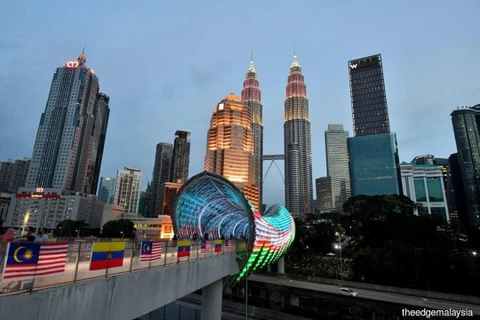Kuala Lumpur (VNA) - Imports to Malaysia are being delayed by up to two weeks as shipping giants shift freight routes to avoid possible attacks in the Red Sea, which means that Malaysians will likely have to pay more for imported luxuries such as wine and gourmet food shipped from Europe.
Container shipping rates over the Asia-Europe route have shot up by more than 600% since the war in Gaza broke out, according to data from the Maybank Investment Banking Group (MIBG), leaving little room for importers in Malaysia to keep costs down. Some importers have decided to suspend placing new orders with their European suppliers.
Economists say higher shipping costs as well as logistics delays and disruptions caused by the Red Sea crisis are inevitable but warn that things could get worse if the situation persists.
For Malaysia, this could raise costs and cause supply chain delays or disruptions in key imports from Europe for industries such as chemicals, machinery and auto, said Suhaimi Ilias, chief economist with MIBG.
Two-way trade between Malaysia and the European Union was valued at 45.8 billion USD or 7.6% of the Southeast Asian nation’s total trade in 2022, according to data from Malaysia’s international trade ministry. Of the figure, Malaysia's imports were worth more than 19.09 billion USD, mostly covering the electrical and electronics, chemicals and chemical products and machinery sectors.
Prolonged maritime traffic diversion from the Suez Canal to the Cape of Good Hope, which major shippers have said would add up to two weeks in delivery time, could also add inflationary pressure on ordinary consumers in Malaysia.
Mohd Afzanizam Abdul Rashid, chief economist with Bank Muamalat said over half of the country’s international trade depends on sea transport. Before the Red Sea crisis, Malaysia’s government had forecast inflation to hover between 2.1% and 3.6% this year amid plans to restructure broad-based subsidies.
Prime Minister Anwar Ibrahim's government has announced that the current situation remained manageable and has not yet receive complaints from either importers or exporters over any increase in freight and operating costs./.
























